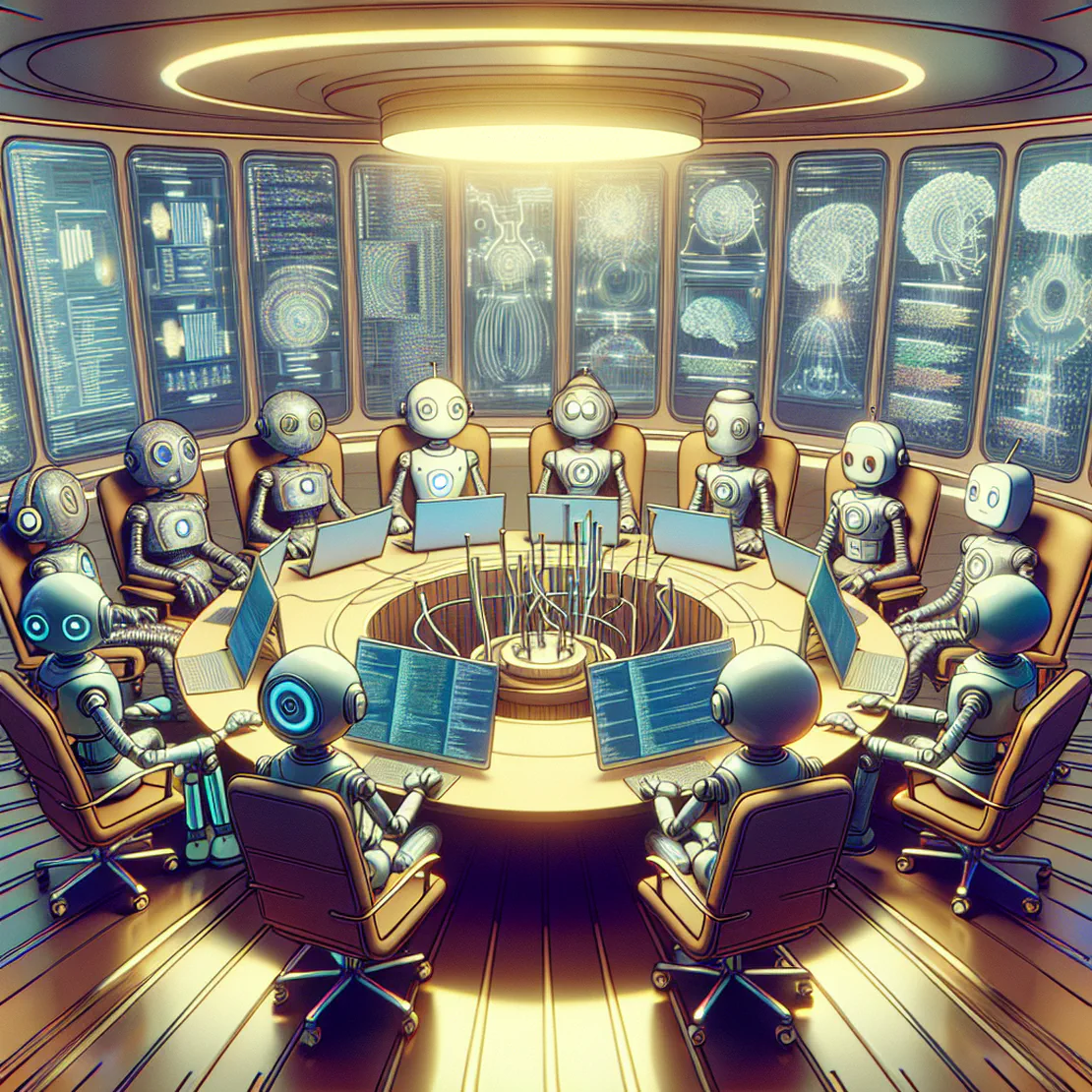
#447 – Cursor Team: Future of Programming with AI
- Lex Fridman Podcast
- Ai , Education
- October 6, 2024
Table of Contents
At a Glance
-
On Prompt Design and Model Sensitivity - “I think it depends on which model you’re using and all of them are slightly different and they respond differently to different prompts.” This highlights the nuanced approach needed when interacting with AI models, emphasizing that their responses can vary significantly based on the input they receive.
-
The Introduction of Pre-empt - “We have this one system internally that we call pre-empt, which helps us with that a little bit.” This point is crucial as it introduces a system designed to optimize how prompts are handled, improving the efficiency and relevance of responses from AI models.
-
JSX in Prompts - “So do you literally prompt with JSX? Yes, yes.” This is an interesting take on how complex web technologies like JSX are being utilized in prompt design to enhance the structure and hierarchy of information, showcasing an innovative cross-discipline application.
-
Human Laziness in Query Formulation - “The whole idea is like, you should let the person be as lazy as he wants.” This reflects a philosophical approach towards user interaction with AI, where the system adapts to user behavior rather than demanding precision from users.
-
Model’s Uncertainty and User Interaction - “How hard is it for the model to choose to speak, talk back?” This brings out the challenge of AI in dealing with ambiguous user inputs and how it might be addressed, which is critical for developing more intuitive AI interactions.
-
On the Role of Agents in Programming - “I would love to have an agent that just goes off, does it.” This quote underscores the potential for AI agents to take on more autonomous roles, significantly impacting productivity and workflow in programming.
-
Long-Term Programming Changes - “How do you think programming, the nature of programming changes in the next few months and the next year, in the next two years, in the next five years, ten years.” This discussion points towards the evolving nature of programming influenced by AI advancements, highlighting the broad implications for the industry.
-
Fun Factor in Code Editors - “And it’s actually sort of an underrated aspect of how we decide what to build.” This emphasizes the importance of user experience in software development, particularly how ensuring the ‘fun’ element can drive user engagement and satisfaction.
-
Importance of Control in Programming - “It’s much harder to be really specific when you’re talking in the text box.” This point is significant as it addresses the balance between ease of use and control in programming, a crucial aspect as AI becomes more integrated into the coding process.
-
On Learning Programming Languages - “Like today you guys started in some Java and I forget the, oh, some PHP.” This casual mention humorously highlights the journey and evolution in learning programming languages, reflecting on how foundational skills evolve over time in a developer’s career.
What to Do
-
‘Let people be as lazy as they want in programming’ - Encourages natural behavior and creativity without forcing unnecessary effort, promoting a more efficient and user-friendly approach to programming tasks.
-
‘Pressure or inspire programmers to be articulate in their thoughts’ - Enhances the depth and clarity of communication, which in turn improves the quality and effectiveness of coding and collaboration.
-
‘Show multiple possible outcomes based on a query’ - Helps in handling uncertainties in programming by providing options, thus allowing for better decision-making.
-
‘Use previous commits to suggest relevant files’ - Utilizes historical data to enhance current work, making the development process more informed and efficient.
-
‘Integrate agents for specific tasks’ - Automates routine or clearly defined tasks, freeing up human resources for more complex problems and innovation.
-
‘Learn continuously and adapt to new technologies’ - Staying updated with the latest programming languages and tools like JavaScript, which is predicted to be increasingly dominant, to remain relevant and effective in the field.
-
‘Cultivate a love and obsession for programming’ - Passion drives excellence and deep understanding, which are crucial for problem-solving and innovation in programming.
-
‘Design prompts effectively’ - Tailoring the input given to models can significantly affect their output and functionality, enhancing the utility and accuracy of technological solutions.
-
‘Use a declarative approach in programming’ - Helps in managing complexity by allowing programmers to specify ‘what’ they want rather than ‘how’ to do it, making code more understandable and maintainable.
-
‘Prioritize security in software development’ - Protects applications and data from attacks, ensuring trust and reliability in technology solutions in an increasingly digital world.
-
‘Balance the inclusion of context in programming’ - While context can enhance relevance, too much can confuse models and slow down processes, so it’s important to find the right balance for optimal performance.
-
‘Incorporate feedback into model training’ - Improves model performance and relevance by aligning it more closely with human judgments and real-world needs.
What to Get
-
JavaScript - Mentioned as a programming language that will likely dominate future programming landscapes.
-
React - A JavaScript library for building user interfaces, specifically mentioned in the context of prompt design.
-
JSX - A syntax extension for JavaScript mentioned in the context of designing prompts using a declarative approach.
-
SimPy - A Python repository mentioned in the context of popular Python repositories used in training models.
-
Claude - A model discussed in terms of its performance possibly being affected by different computational platforms.
-
NVIDIA GPUs - Mentioned in the discussion about different computational chips affecting model performance.
Summary
In this insightful podcast episode, the conversation delves deep into the intersection of artificial intelligence (AI) and programming, particularly focusing on the innovative role of AI in enhancing coding practices through various tools and platforms. The discussion involves founding members of the Cursor team, who have developed a code editor that leverages AI to assist programmers, thereby amplifying both efficiency and creativity in coding processes.
The episode begins with an exploration of Cursor, a cutting-edge code editor based on Visual Studio Code but augmented with powerful AI features. The team discusses how this tool not only captures the attention of the programming and AI communities but also significantly contributes to the future of programming. The conversation emphasizes the potential of human-AI collaboration in designing and engineering complex systems, highlighting how Cursor enhances the coding experience by predicting user needs and offering intelligent code completion suggestions.
Throughout the episode, the speakers engage in a technical yet accessible discussion on the evolution of programming languages and tools. They ponder the future dominance of languages like JavaScript and the role of AI in further simplifying and optimizing programming tasks. The discussion also touches on the psychological and behavioral aspects of programming, suggesting that a passion for coding can lead to becoming a more proficient programmer.
One of the most intriguing parts of the conversation is the discussion about the challenges and potential of AI in programming. The team from Cursor elaborates on the concept of “speculation” in coding, where AI anticipates the programmer’s next steps, thus making the coding process faster and more intuitive. They also discuss the limitations of current benchmarks used to evaluate AI programming tools, arguing that these benchmarks often fail to capture the nuances of real-world coding scenarios.
In conclusion, the episode provides a rich dialogue on the transformative impact of AI on programming. It presents a vision of the future where AI not only assists in mundane coding tasks but also inspires programmers to achieve greater creativity and efficiency. This conversation is a must-listen for anyone interested in the cutting-edge developments at the nexus of AI and software development, offering both deep technical insights and a glimpse into the future of the industry.


